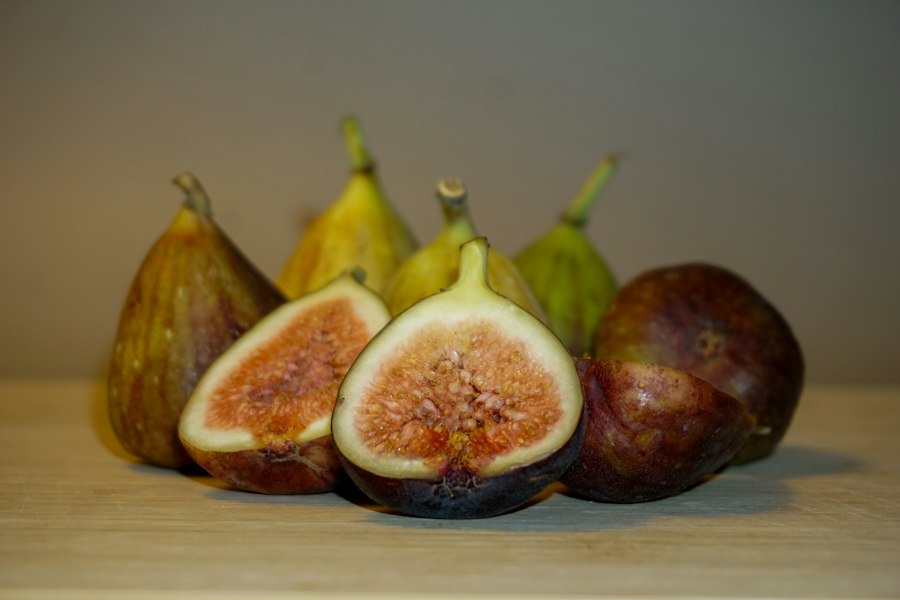Fuel Your Body with These Delicious and Nutritious Healthy Food Choices

Healthy eating habits are essential for maintaining overall health and well-being. The food we consume plays a significant role in our physical and mental health, as well as our energy levels and overall quality of life. Making healthy food choices can improve our immune system, reduce the risk of chronic diseases, and promote a healthy weight. By prioritizing nutritious foods, we can fuel our bodies with the necessary nutrients to thrive.
Key Takeaways
- Healthy food choices are important for overall health and well-being.
- A balanced diet is crucial for providing the body with necessary nutrients.
- Whole grains should be a staple in a healthy diet.
- Protein-rich foods are essential for fueling the body.
- Fruits and vegetables are packed with nutrients and flavor.
The Importance of a Balanced Diet
A balanced diet refers to consuming a variety of foods from different food groups in appropriate proportions. This includes fruits, vegetables, whole grains, lean proteins, healthy fats, and dairy or dairy alternatives. A balanced diet provides the body with essential nutrients such as vitamins, minerals, fiber, and antioxidants. It helps maintain a healthy weight, reduces the risk of chronic diseases like heart disease and diabetes, and promotes overall well-being.
Whole Grains: A Staple for a Healthy Diet
Whole grains are an essential component of a healthy diet. Unlike refined grains, whole grains contain all parts of the grain, including the bran, germ, and endosperm. This means they are higher in fiber, vitamins, minerals, and antioxidants. Whole grains provide sustained energy and help regulate blood sugar levels. Examples of whole grain foods include whole wheat bread, brown rice, quinoa, oats, and barley. To incorporate whole grains into meals, try swapping white bread for whole wheat bread or substituting white rice with brown rice in recipes.
Protein-Rich Foods to Fuel Your Body
| Food | Protein Content (per 100g) | Calories (per 100g) |
|---|---|---|
| Chicken Breast | 31g | 165 |
| Tuna | 30g | 116 |
| Salmon | 25g | 206 |
| Quinoa | 4g | 120 |
| Chickpeas | 19g | 364 |
| Greek Yogurt | 10g | 59 |
Protein is crucial for building and repairing tissues in the body. It also plays a role in hormone production and supports a healthy immune system. Including protein-rich foods in your diet can help you feel fuller for longer and maintain muscle mass. Good sources of protein include lean meats like chicken and turkey, fish, eggs, legumes such as beans and lentils, tofu, and Greek yogurt. To incorporate protein into meals, try adding grilled chicken to salads or including beans in soups and stews.
Fruits and Vegetables: Packed with Nutrients and Flavor
Fruits and vegetables are packed with essential vitamins, minerals, fiber, and antioxidants. They provide numerous health benefits, including reducing the risk of chronic diseases like heart disease and certain types of cancer. Fruits and vegetables are also low in calories and high in water content, making them a great choice for weight management. Aim to include a variety of colorful fruits and vegetables in your diet, such as berries, leafy greens, bell peppers, carrots, and citrus fruits. You can incorporate them into meals by adding them to smoothies, salads, stir-fries, or enjoying them as snacks.
Healthy Fats: Essential for Optimal Health

Contrary to popular belief, not all fats are bad for you. Healthy fats are essential for optimal health as they provide energy, support cell growth, protect organs, and help absorb fat-soluble vitamins. Good sources of healthy fats include avocados, nuts and seeds, olive oil, fatty fish like salmon and tuna, and coconut oil. To incorporate healthy fats into meals, try using olive oil as a salad dressing or adding avocado slices to sandwiches or wraps.
Dairy and Alternatives: A Source of Calcium and Vitamins
Dairy products and dairy alternatives are important sources of calcium, which is essential for strong bones and teeth. They also provide vitamins such as vitamin D and B12. Good sources of dairy include milk, cheese, and yogurt. If you are lactose intolerant or prefer dairy alternatives, options like almond milk or soy yogurt can provide similar nutrients. Incorporate dairy or dairy alternatives into meals by enjoying a glass of milk with breakfast or adding yogurt to smoothies or as a topping for granola.
Hydration: The Key to a Healthy Body
Staying hydrated is crucial for maintaining overall health and well-being. Water is essential for digestion, nutrient absorption, temperature regulation, and the elimination of waste products. It also helps keep our skin healthy and supports cognitive function. Aim to drink at least eight glasses of water per day, and more if you are physically active or in hot weather. You can also stay hydrated by consuming foods with high water content, such as fruits and vegetables.
Healthy Snacks: Satisfy Your Cravings without Compromising Your Health
Choosing healthy snacks over processed snacks is a great way to satisfy your cravings while nourishing your body. Healthy snacks provide essential nutrients and can help maintain energy levels throughout the day. Examples of healthy snacks include fresh fruit, raw nuts and seeds, Greek yogurt, hummus with carrot sticks, or whole grain crackers with avocado. Avoid reaching for sugary or salty snacks that provide empty calories and little nutritional value.
Making Healthy Food Choices a Lifestyle
Making healthy food choices should be a lifestyle rather than a temporary diet. It is important to prioritize nutritious foods consistently to reap the long-term benefits. Start by making small changes in your daily life, such as incorporating more fruits and vegetables into meals or swapping unhealthy snacks for healthier options. Plan your meals ahead of time, make a grocery list with nutritious foods, and cook at home as much as possible. Surround yourself with a supportive environment that encourages healthy eating habits.
In conclusion, making healthy food choices is essential for maintaining overall health and well-being. A balanced diet that includes whole grains, lean proteins, fruits and vegetables, healthy fats, and dairy or dairy alternatives provides the body with essential nutrients and reduces the risk of chronic diseases. By incorporating these foods into meals and making small changes towards a healthier lifestyle, we can improve our physical and mental health, maintain a healthy weight, and enhance our quality of life. Prioritize nutritious foods and make healthy eating habits a lifelong commitment.
If you’re looking for guidance on making healthy food choices, you may find this article on “Navigating Dietary Guidelines for Beginners” helpful. It provides practical tips and advice on how to incorporate nutritious foods into your diet and make informed decisions about what you eat. Check it out here.
FAQs
What are healthy food choices?
Healthy food choices are foods that are nutrient-dense, meaning they provide a high amount of nutrients relative to their calorie content. These foods are typically whole, minimally processed, and include a variety of fruits, vegetables, whole grains, lean proteins, and healthy fats.
Why is it important to make healthy food choices?
Making healthy food choices is important for maintaining overall health and preventing chronic diseases such as heart disease, diabetes, and certain cancers. Eating a balanced diet that includes a variety of nutrient-dense foods can also help with weight management and improve energy levels.
What are some examples of healthy food choices?
Examples of healthy food choices include fruits and vegetables, whole grains, lean proteins such as chicken, fish, and beans, and healthy fats such as avocado and nuts. It is also important to limit processed foods, sugary drinks, and foods high in saturated and trans fats.
How can I incorporate healthy food choices into my diet?
Incorporating healthy food choices into your diet can be done by planning meals ahead of time, choosing whole foods over processed foods, and incorporating a variety of fruits, vegetables, whole grains, lean proteins, and healthy fats into your meals. It is also important to limit portion sizes and avoid sugary drinks and snacks.
Are all organic foods considered healthy food choices?
While organic foods may be free from pesticides and other harmful chemicals, not all organic foods are considered healthy food choices. It is important to still choose nutrient-dense foods and limit processed foods, even if they are organic. Additionally, organic foods may be more expensive and not always accessible to everyone.